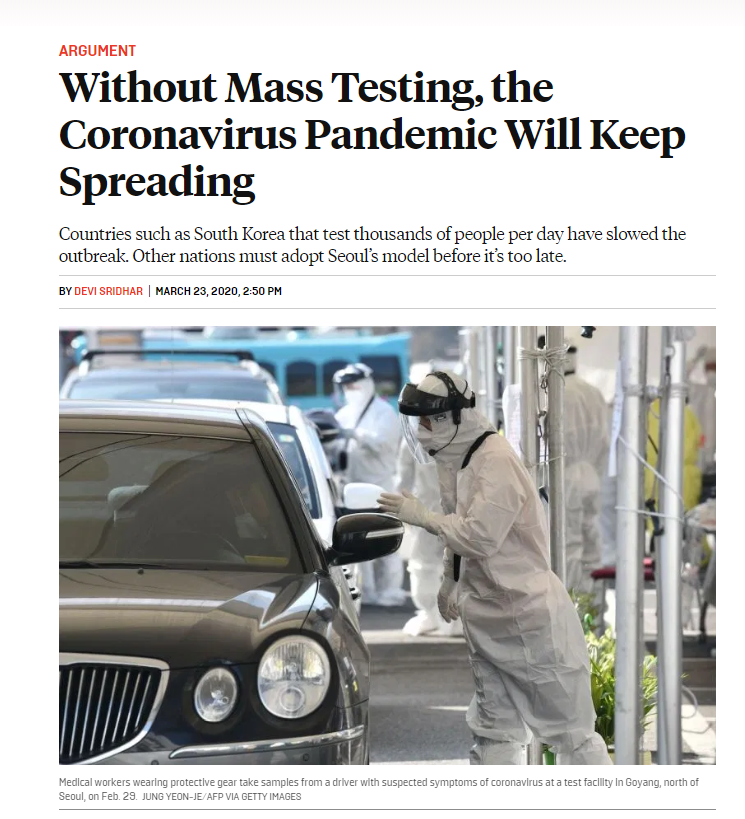
The U.S. magazine Foreign Policy on March 23 said Korea lowered its daily number of confirmed cases of the novel coronavirus disease (COVID-19) without resorting to a draconian national lockdown, citing the nation's extensive testing and tracing of infected people. (Screen capture from Foreign Policy website)
By Kim Hyelin and Lee Jihae
The world is paying more attention to Korea's response to the outbreak of the novel coronavirus disease (COVID-19) without having to resort to a national lockdown.
Former British Health Secretary Jeremy Hunt, now a lawmaker who chairs the Health and Social Care Select Committee, on March 25 told the BBC, "So they (Korea) had it worse than us. But they ruthlessly, rigorously traced every single suspected COVID-19 case. They then find everyone that person has been in contact with and take them out of circulation so that they can't spread the virus to anyone else."
In the March 23 article "Without Mass Testing, the Coronavirus Pandemic Will Keep Spreading" posted on the homepage of the American magazine Foreign Policy, Devi Sridhar, a professor and chair of global public health at the University of Edinburgh of the U.K., said, "South Korea stands out as an exemplar… it has managed to bring daily new cases into relative decline without imposing draconian nationwide lockdown measures."
"The country, with a population of 51 million, tests more than 20,000 people a day at more than 600 testing sites nationwide, while integrating apps that not only track individuals if they have tested positive, but also warn them if they might have been exposed to a known case."
In France, the daily L'Humanité on March 25 said in the article "South Korea, no containment but systematic screening to contain contamination," "South Korea's strategy of rapid mass epidemiological testing is considered the 'silver bullet' against the spread of the coronavirus."
The extensive testing is "all the more impressive" because "despite the closure of schools, no city has been confined," L'Humanité added.
The newspaper went on to say "tracing was made legal by a law drawn up after the MERS (Middle East respiratory syndrome) epidemic, which gives the government the authority to impose a temporary limit to citizens' privacy to stem the spread of the epidemic."
kimhyelin211@korea.kr